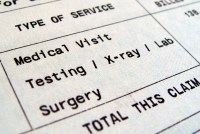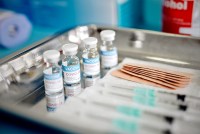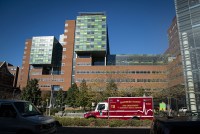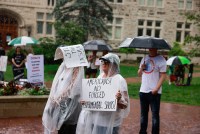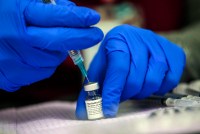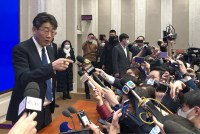Your Exorbitant Medical Bill, Brought to You by the Latest Hospital Merger
After decades of unchecked mergers, health care is the land of giants, with huge medical systems monopolizing care in many cities, states, and even whole regions of the country. This decreases patient choice, impedes innovation, erodes quality of care, and raises prices. And federal regulators have been slow to act.
Denials of Health Insurance Claims Are Rising — And Getting Weirder
The Department of Health and Human Services is tasked with monitoring denials both by Obamacare health plans and those offered through employers and insurers. As insurers’ denials become more common, they sometimes defy not just medical standards of care but sheer logic. Why hasn’t the agency fulfilled its assignment?
An AI Chatbot May Be Your Next Therapist. Will It Actually Help Your Mental Health?
Given a dire shortage of human behavioral health providers in the U.S., it may prove tempting for insurers to offer up apps and chatbots to meet the federal mental health parity requirement. But artificial intelligence, by definition fake, can’t master the empathic flow between patient and doctor that’s central to therapy.
Guns Are the Biggest Public Health Threat Kids Face. Why Aren’t They Getting the Message?
Today’s public service announcements on gun safety feel somewhat sanitized. It’s time to act with the same kind of visceral public campaign that helped de-glorify smoking. Would filmmakers commit to making action movies without guns, just as filmmakers stopped making smoking glamorous in films?
Did the US Jump the Gun With the New Omicron-Targeted Vaccines?
With fears of a winter surge looming, government agencies have authorized and encouraged vaccination with a newly formulated booster. But the science to support that decision remains inconclusive.
La crisis de deuda que los estadounidenses enfermos no pueden evitar
Poca atención pública se ha centrado en lo que es, al menos estadísticamente, una crisis de deuda más grande: se estima que 100 millones de personas, o el 41% de todos los adultos del país, tienen deudas de atención médica, en comparación con 42 millones con deuda estudiantil.
The Debt Crisis That Sick Americans Can’t Avoid
The federal government is stepping in to assist student loan borrowers. But little public attention has been focused on what is — statistically, at least — a bigger, broader debt crisis in our country: An estimated 100 million people in the U.S., or 41% of all adults, are saddled with pernicious health care debt.
Will the US Overcome Its Covid Complacency Even as the Threat Returns?
One million Americans have died from covid-19 — far more per capita than in any other developed country. A new variant is doubling case rates in some states, and more than 300 people are dying a day. But our nation’s pandemic response has become mild-mannered and performative, backed by neither money, urgency, nor enforcement.
Is My Drug Copay Coupon a Form of Charity — Or a Bribe?
Drug copayment assistance is a form of profitable charity — and, yes, that’s an oxymoron. Amid skyrocketing drug prices, it’s understandable that patients desperately need help affording medicine, especially when their health is on the line. But these programs create a mirage that perpetuates our health care system’s reckless spending.
The End of the Covid Emergency Could Mean a Huge Loss of Health Insurance
It is a perilous time to throw low- and middle-income Americans off the insurance cliff: A new omicron subvariant is spreading, and a program that provided coronavirus testing and covid-19 treatment at no cost to the uninsured has expired.
La historia muestra que vacunar a los niños ayuda a prevenir brotes de enfermedades graves. ¿Qué pasará con covid?
Polio, Chickenpox, Measles, Now Covid. It’s Time to Consult History on School Vaccine Mandates
As some states adopt covid vaccine requirements, not everyone agrees mandates for children are the way forward. Taking a page from history: We have two paths to putting the pandemic behind us: a quicker, more certain one of mandatory vaccination or a stuttering, drawn-out, likely more deadly affair.
Public Opinion Is Unified on Lowering Drug Prices. Why Are Leaders Settling for Less?
Politicians and many health experts have done their best to see the glass half-full in the plan put forward by congressional Democrats and the president. But it’s “a far cry” from what other nations do to rein in drug prices, and polls show most voters demand more protection.
Analysis: A Procedure That Cost $1,775 in New York Was $350 in Maryland. Here’s Why.
The state’s unique health system controls what hospitals can charge for services.
The Checkup Is in the Mail? Soliciting Letter Carriers to Help Deliver Health Care
Here’s an out-of-the-box idea: Have letter carriers spend less time delivering mail and take time to perform home visits and basic health checks on the growing population of frail and elderly.
Análisis: ¿No quieres una vacuna? Prepárate para pagar más por tu seguro de salud
A pesar de que las compañías de seguros negocian precios más bajos y cubren gran parte del costo de la atención, los costos asociados al tratamiento de covid deberían ser un incentivo bastante aterrador.
Analysis: Don’t Want a Vaccine? Be Prepared to Pay More for Insurance.
Health insurers could do more to encourage vaccination, including letting the unvaccinated foot their bills.
Analysis: Necessary or Not, Covid Booster Shots Are Probably on the Horizon
In today’s pharmaceutical universe, a simple “safe and effective” determination by the Food and Drug Administration to approve a drug can be manipulated to sell products of questionable value. And drugmakers can profit handsomely.
Why We May Never Know Whether the $56,000-a-Year Alzheimer’s Drug Actually Works
It could take years for follow-up studies to prove Aduhelm slows the disease — or doesn’t. Meanwhile, its maker will profit.
Analysis: Why We’ll Likely Never Know Whether a Covid Lab Leak Happened in China
If international scientific sleuths are hoping to see a lab log or find a whistleblower, that sort of information won’t be revealed. In China today, it is dangerous to say what you know if it challenges the official government narrative.








